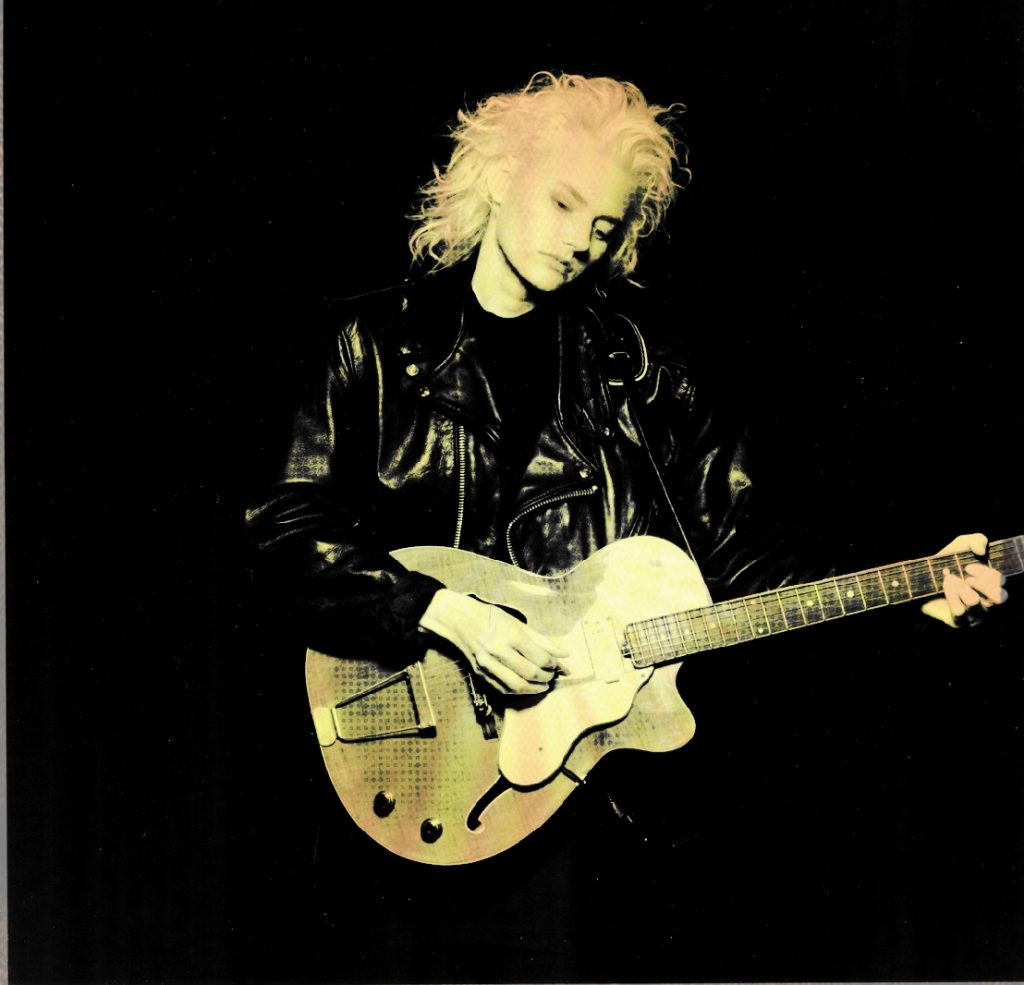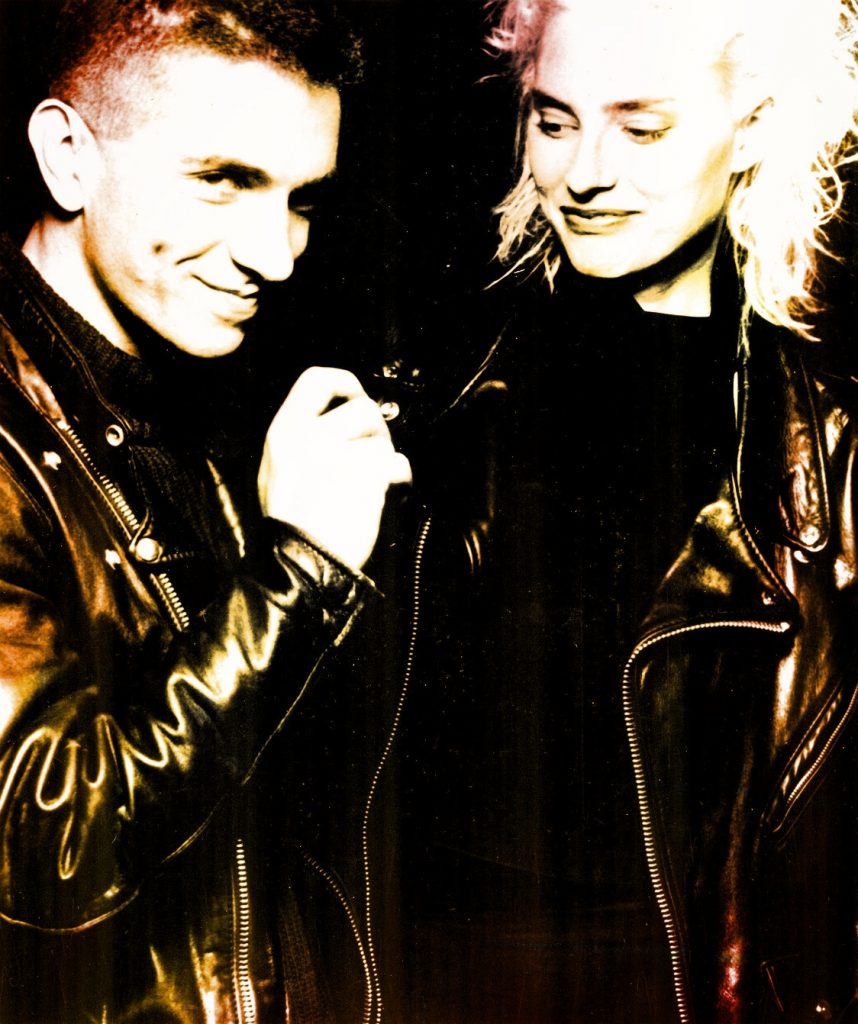
Photo credit: Laura Rossignol
Aimee Mann’s lyrics are rarely uplifting. Indeed, from the first ‘Til Tuesday record in 1985 to the last one in 1988, the songs she penned for the group focused on the pain of relationships that almost always go south. Her romantic pairing with the band’s drummer, Michael Hausman, became fodder for the group’s one and only hit (“Voices Carry”). Some of that drama carried over to the band’s second album, Welcome Home. However, by the time the group headed into the studio to record 1988’s Everything’s Different Now, Mann was coming off another fractured relationship with songwriter, Jules Shear, and starting one with her touring guitarist, Jon Brion. However, it’s not just romantic relationships that contribute to her sometimes dour outlook on the world. The recording industry has also been a source of professional frustration for her since ‘Til Tuesday signed with Epic — and later when she went solo under Terry Ellis’s Imago Records. In an interview with the Boston Phoenix in 1996, Mann went on a rant against Ellis and others like him in the industry: “People in this business just don’t care about ruining people’s careers…people ask me ‘Are you bitter?’ Of course, I’m bitter.” That bitterness certainly gave her a lot of ideas for songs about the bastards of this world to fill nine solo records, but on Everything’s Different Now, Mann, and what was left of the original line up of ‘Til Tuesday, crafted 10 solid songs that are close to a minor masterpiece as can be for a band who had such a short life.

Produced by Rhett Davies and Bruce Lampcov, Everything’s Different Now is devoid of any New Wave flourishes that Voices Carry incorporated, and much more mature and self-assured than the songs on Welcome Home. Perhaps part of that was the inclusion of other songwriters for the project (which was not Mann’s idea). Take the title track as an example. It wasn’t written by Mann, but rather by her former paramour, Jules Shear (along with Matthew Sweet). And while the song does have lyrical themes that ‘Til Tuesday excelled in, the music has a brighter musical feel. In other words, The Suits at Epic were looking to both lighten things up on the album and get a hit with a catchy song. By and large, the decision to be more commercial did have its positives. There’s a less solipsistic feel to most of the lyrics, and the music tends to have better hooks than the group’s previous album. “Rip in Heaven,” like most of the songs on the record, is about a failed relationship. But perhaps the contribution of songwriter Kit Hain gives the tune a different feel from Mann’s usual compositions — like when she sings: Well, better than if I just go away/Preserving the fiction of indifference now/Replacing love. Her phrasing creates a powerful feel to the lyrics just as the music transitions into the lead guitar break.
“Why Must I” is pure Mann — and lyrically it’s more of a confessional than what’s she’s known for. Clearly, she’s feeling the pain of a breakup, but her lyrics get more introspective when she wonders: Why must I take it so hard?/Other people get by/With either bourbon or God/But my world became this one boy/It’s the way that I’m made/Do you think I enjoy it? Michael Montes’s keyboard work carries most of the hooks, but Robert Holmes’ guitar parts work to great effect by sparingly adding tasteful accents during the ride out — which brings in some needed variety to the tune. “J for Jules” is clearly about Shear, but Mann has crafted a breakup song that rivals “Coming Up Close” off of Welcome Home. The addition Peter Abrams on the french horn was a nice touch for a pop song, too.”(Believed You Were) Lucky” was the first single off the record, and it’s the unexpurgated version that really shines — if only for the final words in the chorus. Co-written by Shear, the song shows the kind of obsessive reflection that goes on post-breakup — going over and over what it was that just crumbled the whole relationship. “Limits to Love,” and “Long Gone (Buddy)” continues with variations of the album’s central theme. However, on “The Other End (of the Telescope)” — which was co-written and had co-vocals by Elvis Costello — the song stands out as one of the most lyrically interesting ones on the record. Granted, the tempo is a bit plodding at times, but Costello’s cynicism is front and center toward the end with lyrics like:
You’re half-naked ambition and
You’re half out of your wits
And though your wristwatch always works
Your necktie never fits
Now it’s so hard to pick the receiver up
And when I call, I never noticed you could be so small
The answer was under your nose
But the question never arose
Costello released his own version of the song in 1996 on All This Useless Beauty that was far more bitter than what he penned with Mann in 1988. That bitterness never really consumes Mann, though. Even through the worst of it, she maintains hope that one day she’ll find happiness in some form or fashion in a future relationship — which she did with singer-songwriter Michael Penn in 1993. While “Crash and Burn” was written by another duo, it fits well within the record both lyrically and musically. “How Can You Give Up?” closes out the album in a fitting way. What I mean is that ‘Til Tuesday’s career owes a lot to the doomed relationship between Michael Hausman and Aimee Mann. Their breakup reputedly led to their most successful single (“Voices Carry”) — even though there’s some evidence to suggest the couple/bandmates arguing wasn’t the inspiration for the song. And while “How Can You Give Up?” doesn’t reach the same heights, it’s a fitting swansong for the band. Hausman’s connection with Mann after the band split has morphed/evolved into a stable professional one (he’s her manager). As a drummer, he was an able timekeeper whose contributions to the songs is what one would expect from a professional drummer: one who can push and pull a song’s rhythm with the right amounts of aggression and sensitivity. He certainly does that on Everything’s Different Now, but were it not for Mann’s growing confidence as a songwriter and pop craftswoman, the record wouldn’t have been half as strong as what the band wrought in 1988. It’s a shame that Mann doesn’t feature more of these songs in her post-’Til Tuesday performances, because of the three records the band released, Everything’s Different Now is by far the strongest material in the band’s catalog — and something that shouldn’t be buried with the past.

See ‘Til Tuesday perform “Rip In Heaven” on Late Night with David Letterman. December 1, 1998.
I won’t deny she can be dour, but she arrived at a moment when dour was refreshing. It was like a statement in among all the smiley-girls and sexpots. I followed her right up to Lost In Space where, afterward, I too got weary of the mourning. I will say, however, Mental Illness was a great record.
The Forgotten Arm and One More Drifter In The Snow were such downer albums that I had to run away from Mann’s music for a while. @#%&*! Smilers kind of got back on track, and by the time she released Mental Illness, I was a full-blown fan again.
However…
Everything’s Different Now locked in with more upbeat music and catchy hooks in the choruses that it’s really difficult NOT to listen to this record over and over. :-) Well, for me anyway.